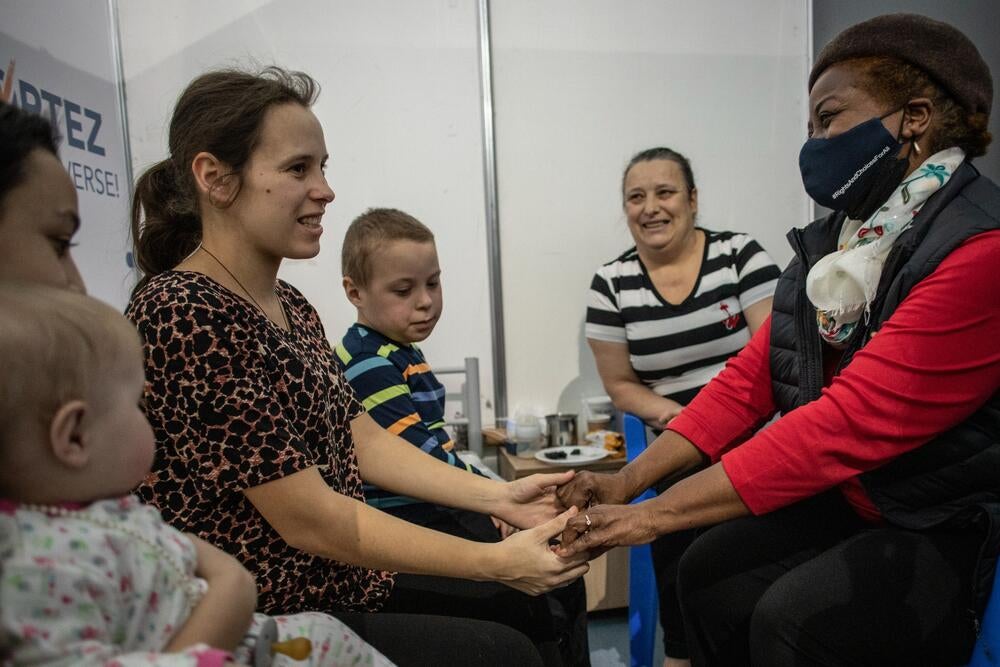CHIŞINĂU, Republic of Moldova – “If I wasn't so scared there, I wouldn’t think of leaving my country,” said Maria Voinska, who fled Odessa when Russia invaded Ukraine on 24 February. As of 11 March, 310,000 people, including some 278,000 Ukrainians, have entered the Republic of Moldova since the start of the war; more than 173,000 Ukrainian refugees have moved on to other destinations, according to the United Nations Refugee Agency. Most refugees who are staying are women (46 per cent) and children (46 per cent).
Maria is staying with relatives while others are living in about 166 refugee placement centres (80 accredited by the government, as of 7 March) that have been set up across this country of 2.61 million. On her visit, UNFPA Executive Director Dr. Natalia Kanem met with Chișinău Mayor Ion Ceban, the President of the Parliament, Igor Grosu, and the Minister of Labour and Social Protection, Marcel Spatari. She visited Moldexpo International Exhibition Centre in the capital, which had been transformed overnight into a refugee shelter. She also went to Manej Sport Arena, currently housing 250 refugees.
“I’ve spoken to women who had to flee for their lives with just what they could carry,” Dr. Kanem said in an interview. “One of them, in tears, explained how she had to leave her three-year-old boy behind. It’s been a harrowing journey for these women. The fear in their eyes is unforgettable.”

UNFPA has operated programmes in Ukraine since 1997 and in the Republic of Moldova since 1995. In addition to providing technical and programme advisory services to neighbouring Member States that are receiving refugees, the agency is working to bring reproductive health equipment and supplies and mobile health teams providing sexual and reproductive health and gender-based violence services to Ukraine. It continues to operate 10 shelters, eight crisis rooms and a support hotline for gender-based violence survivors. In the Republic of Moldova, where volunteers from UNFPA-supported youth centres are involved in the response, has distributed 6,000 dignity kits with menstrual and hygiene product so far and is referring pregnant women to medical care units and providing guidance on staying safe in transit while working to distribute cash assistance and establish women and girls’ safe spaces and mobile clinics to support health facilities attending to increased reproductive health care needs.
“Humanitarian needs are growing by the hour, and while the situation is still unfolding, it is clear that the war will deepen vulnerabilities and inequalities across the region and beyond,” said Dr. Kanem. “We will do whatever it takes to make sure that women affected by the war, in Ukraine and in neighbouring countries, can give birth safely and live free from violence.”
As for Maria, she had a healthy baby girl a week after arriving. “Thank God my baby was born under a peaceful sky,” she said. “I hope for the same in my country soon.”


